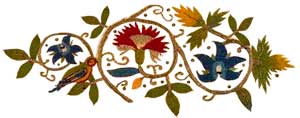 “You’re the one who inspired me.” [Kate says to her brother Johnny]
“You’re the one who inspired me.” [Kate says to her brother Johnny]
“Me?”
“Your knowledge. Your Ovid that you taught me to read, all those fantastical transformations. Now I shall have one myself.”
“Into a boy.” He looked dubious. Chapter III, The Secret Player
As Nigel Wheale says in Writing and Society: Literacy, Print and Politics in Britain, 1590-1660: “Women were economically, legally, and educationally subordinated by the conventions of early modern society, and everyone was routinely reminded of female inferiority” (114). That state was, however, paradoxical: in reality women were not powerless nor simply Eve’s fallen daughters. The tension resulting from this paradox left an opening, however small, for female potency and self-expression.
Could an ordinary woman even imagine independence in sixteenth century England? Queen Elizabeth ruled England; she remained a virgin, at least in the contemporary sense of the word: unmarried and unmastered. Mary Sidney Herbert, the Countess of Pembroke, served as her brother Sir Philip Sidney’s literary executor and was an intellectual figure in her own right—and then there was Moll Frith, known as Moll Cutpurse, who went about in men’s clothing and got away with it. Three exceptional women.
In my stories, literacy can determine one’s fate. A woman—or man—who can read has an advantage, perhaps marginal but definitely rich in potential. Kate Collins benefits from her brother’s learning. She would have learned little more than her ABC’s, but Johnny opens doors to her. Thanks to his passing on his lessons from his tutor, Master Varney, Kate knows her Ovid, whose Metamorphoses, Shakespeare’s own favorite book, prepares her for her own transformation. She could never have become an actor were she not literate. When she watches a rehearsal of an early Tragedy of Richard III, she realizes how little English history she knows, but thanks to her brother Johnny’s classical education, she is familiar with Alexander the Great, whose name she takes for her male persona. Her aspirations and self-confidence stem directly from her reading.
Actors had to be able to read the ‘plot,’ the posted story of the play, and read and learn their own parts. But literacy involves much more than decoding of symbols: it develops a unique sort of imagination crucial to a player who creates characters onstage from scripted words.
Much of the audience in the Elizabethan theatre, roughly 60% in Wheale’s estimation, was illiterate. They were experienced in listening to and telling stories, as all our ancestors were, time out of mind. In the Renaissance, reading was taking on a new importance. Reading for pleasure, accumulating a library, and writing remained pursuits dominated by the aristocracy. But the class system was no longer rigid, and a man could rise in the world by acquiring those skills, along with the art of rhetoric and debate, history and culture by matriculation at Oxford or Cambridge. Poor boys with academic gifts might gain a patron, as did Christopher Marlowe, a cobbler’s son who was sent to Corpus Christi College, Cambridge, or could serve as sizars: waiting on their fellow students in the dining hall in exchange for tuition.
Girls were denied that opportunity, whether rich or poor. Even when a university education was extended to them in the 1870s, as Virginia Woolf points out in A Room of One’s Own, they were provided with fewer comforts than their male counterparts, nor were they considered members of the University nor granted degrees until 1921. Women’s supposed inferiority, however, does not stop them from aspiring.
Indeed, in early modern England, literacy was spreading to women, even though preachers inveighed against it. Kate appropriates the education her brother is given freely and thus is able to reinvent herself.
